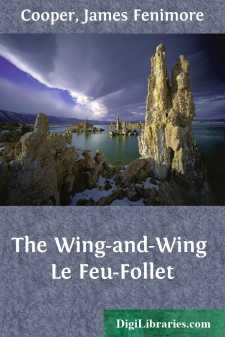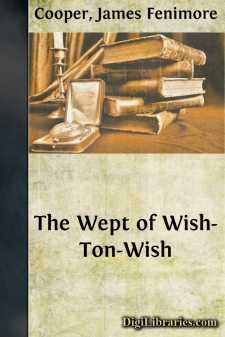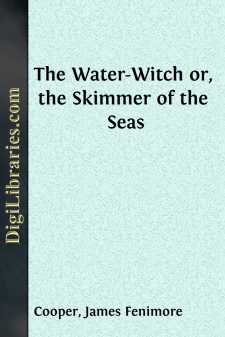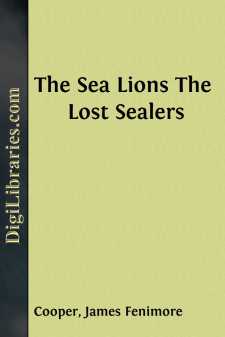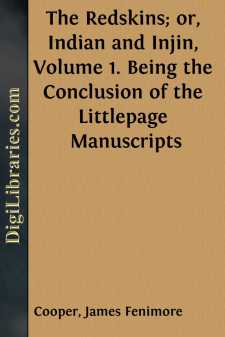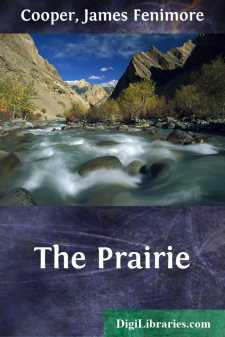Categories
- Antiques & Collectibles 13
- Architecture 36
- Art 48
- Bibles 22
- Biography & Autobiography 815
- Body, Mind & Spirit 144
- Business & Economics 28
- Children's Books 18
- Children's Fiction 14
- Computers 4
- Cooking 94
- Crafts & Hobbies 4
- Drama 346
- Education 58
- Family & Relationships 59
- Fiction 11835
- Games 19
- Gardening 17
- Health & Fitness 34
- History 1378
- House & Home 1
- Humor 147
- Juvenile Fiction 1873
- Juvenile Nonfiction 202
- Language Arts & Disciplines 89
- Law 16
- Literary Collections 686
- Literary Criticism 179
- Mathematics 13
- Medical 41
- Music 40
- Nature 180
- Non-Classifiable 1768
- Performing Arts 7
- Periodicals 1453
- Philosophy 65
- Photography 2
- Poetry 896
- Political Science 203
- Psychology 44
- Reference 154
- Religion 515
- Science 126
- Self-Help 85
- Social Science 83
- Sports & Recreation 34
- Study Aids 3
- Technology & Engineering 60
- Transportation 23
- Travel 463
- True Crime 29
James Fenimore Cooper
James Fenimore Cooper was a 19th-century American writer best known for his historical novels set on the American frontier. His most famous work, "The Last of the Mohicans," is part of the "Leatherstocking Tales" series, which follows the adventures of Natty Bumppo, a resourceful frontiersman. Cooper's writing significantly contributed to the development of American literature, highlighting themes of wilderness, native peoples, and the conflict between civilization and nature.
Author's Books:
Sort by:
Chapter VI. O! It is great for our country to die, where ranks are contending;Bright is the wreath of our fame; Glory awaits us for aye--Glory, that never is dim, shining on with light never ending--Glory, that never shall fade, never, O! never away. Percival. Notwithstanding the startling intelligence that had so unexpectedly reached it, and the warm polemical conflict that had been carried on within...
more...
CHAPTER I."Filled with the face of heaven, which from afarComes down upon the waters; all its hues,From the rich sunset to the rising star,Their magical variety diffuse:And now they change: a paler shadow strewsIts mantle o'er the mountains; parting dayDies like the dolphin, whom each pang imbuesWith a new color as it gasps away,The last still loveliest, till--'tis gone--and all is...
more...
Chapter VI."But, by your leave,I am an officer of state, and comeTo speak with--"Coriolanus.Notwithstanding the sharp look which the Messenger of the Crown deliberately and now openly fastened on the master of Wish-Ton-Wish, while the latter was reading the instrument that was placed before his eyes, there was no evidence of uneasiness to be detected in the unmoved features of the latter. Mark...
more...
Chapter I."What, shall this speech be spoke for our excuse?Or shall we on without apology." The fine estuary which penetrates the American coast, between the fortieth and forty-first degrees of latitude, is formed by the confluence of the Hudson, the Hackensack, the Passaic, the Raritan, and a multitude of smaller streams; all of which pour their tribute into the ocean, within the space named....
more...
It is a strong proof of the diffusive tendency of every thing in this country, that America never yet collected a fleet. Nothing is wanting to this display of power but the will. But a fleet requires only one commander, and a feeling is fast spreading in the country that we ought to be all commanders; unless the spirit of unconstitutional innovation, and usurpation, that is now so prevalent, at...
more...
JAMES FENIMORE COOPER "I believe I could write a better story myself!" With these words, since become famous, James Fenimore Cooper laid aside the English novel which he was reading aloud to his wife. A few days later he submitted several pages of manuscript for her approval, and then settled down to the task of making good his boast. In November, 1820, he gave the public a novel in two...
more...
Chapter I. ----"When that's goneHe shall drink naught but brine." Tempest. While there is less of that high polish in America that is obtained by long intercourse with the great world, than is to be found in nearly every European country, there is much less positive rusticity also. There, the extremes of society are widely separated, repelling rather than attracting each other; while among...
more...
PREFACE. This book closes the series of the Littlepage Manuscripts, which have been given to the world, as containing a fair account of the comparative sacrifices of time, money and labour, made respectively by the landlord and the tenants, on a New York estate; together with the manner in which usages and opinions are changing among us; as well as certain of the reasons of these changes. The...
more...
Chapter I. Par. "Mars dote on you for his novices." All's Well that ends Well. No one, who is familiar with the bustle and activity of an American commercial town, would recognize, in the repose which now reigns in the ancient mart of Rhode Island, a place that, in its day, has been ranked amongst the most important ports along the whole line of our extended coast. It would seem, at the...
more...
INTRODUCTION "The Prairie" was the third in order of Fenimore Cooper's Leatherstocking Tales. Its first appearance was in the year 1827. The idea of the story had suggested itself to him, we are told, before he had finished its immediate forerunner, "The Last of the Mohicans." He chose entirely new scenes for it, "resolved to cross the Mississippi and wander over the desolate...
more...



